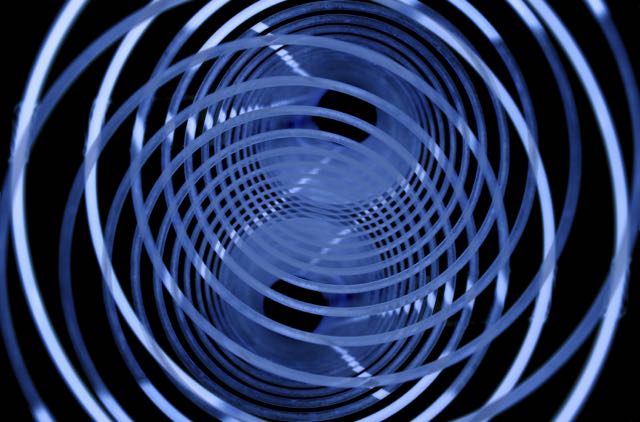A magazine where the digital world meets the real world.
On the web
- Home
- Browse by date
- Browse by topic
- Enter the maze
- Follow our blog
- Follow us on Twitter
- Resources for teachers
- Subscribe
In print
What is cs4fn?
- About us
- Contact us
- Partners
- Privacy and cookies
- Copyright and contributions
- Links to other fun sites
- Complete our questionnaire, give us feedback
Search:
Say it sounds like singing
by Paul Curzon, Queen Mary University of London

Many names stand out as pioneers of electronic music, combining computer science, electronics and music to create new and amazing sounds. Kraftwerk would top many people's lists of the most influential bands and Jean-Michel Jarre must surely be up there. Giorgio Moroder has been back in the limelight with Daft Punk, having previously invented electronic disco in producing Donna Summer's "I feel love". More recently, Will.i.am, La Roux or Goldfrapp might be on your playlist. One of the most influential creators of electronic music, a legend to those in the know, is barely known by comparison though: Delia Derbyshire.
Delia worked for the BBC radiophonic workshop, the department tasked with producing innovative music to go with the BBC's innovative programming, and played a major part in its fame. She had originally tried to get a job at Decca records but was told they didn't employ women in their recording studios (big loss for them!) In creating the sounds and soundscapes behind hundreds of tv and radio programmes, long before electronic music went mainstream, her ideas have influenced just about everyone in the field, whether they have heard of her or not.
So have you heard her work? Her most famous piece of music you will most definitely know. She created the original electronic version of the Dr Who theme long before pop stars were playing electronic music. Each individual note was created separately, by cutting, splicing, speeding up and slowing down recordings of things like a plucked string and white noise. So why didn't you know of her? It's time more people did.
Computers composing
The first person to realise that machines would one day be able to not just play music but also be able to compose it, was Victorian programmer, and Countess, Ada Lovelace.


